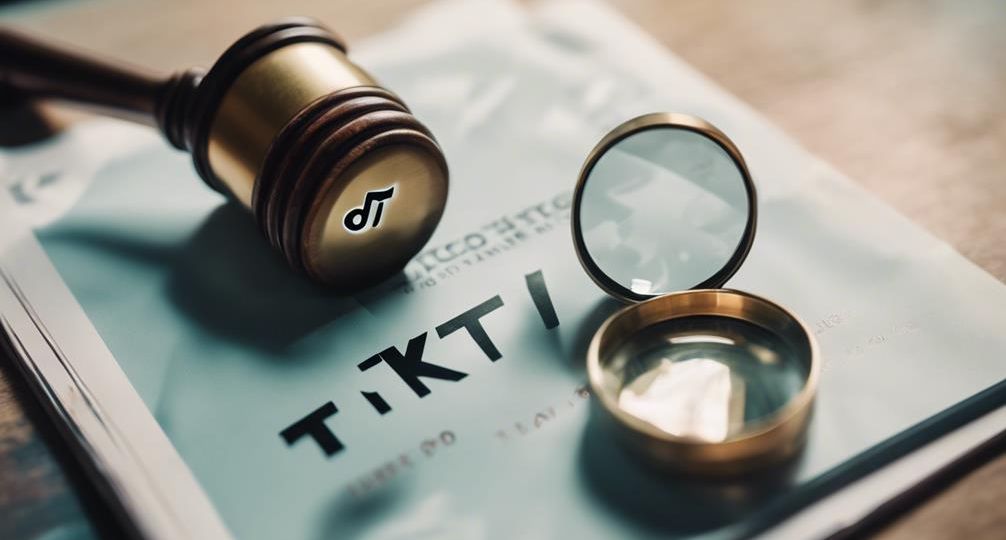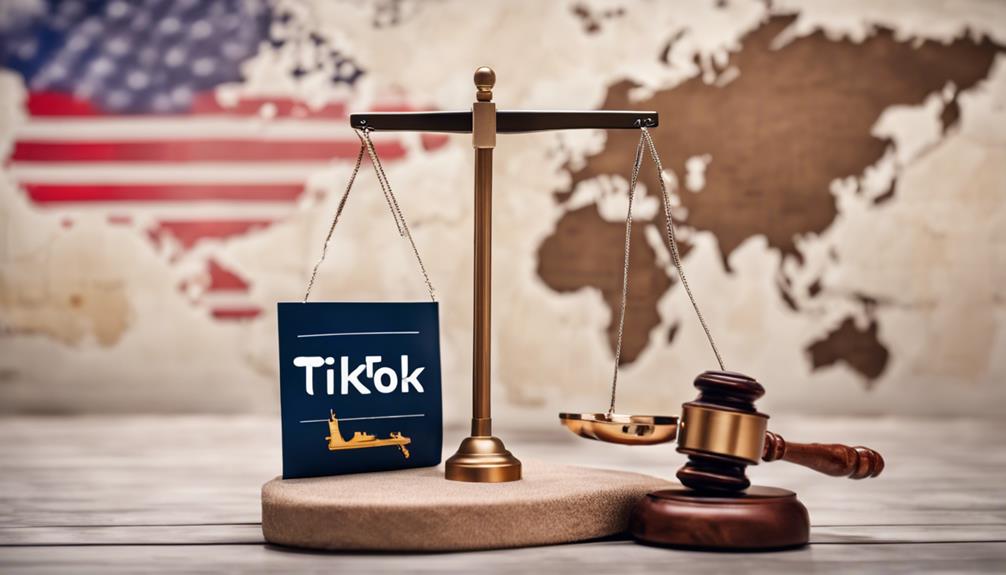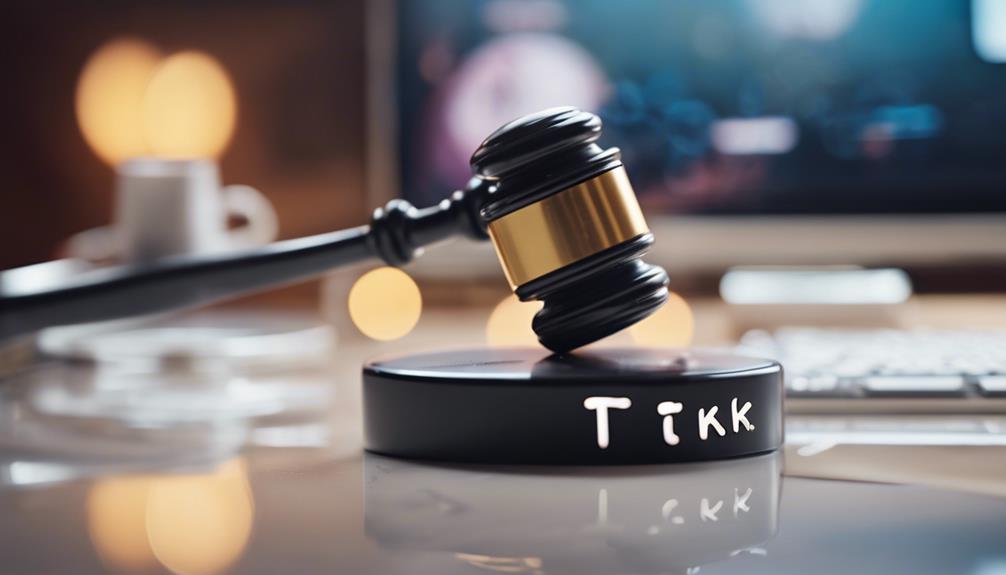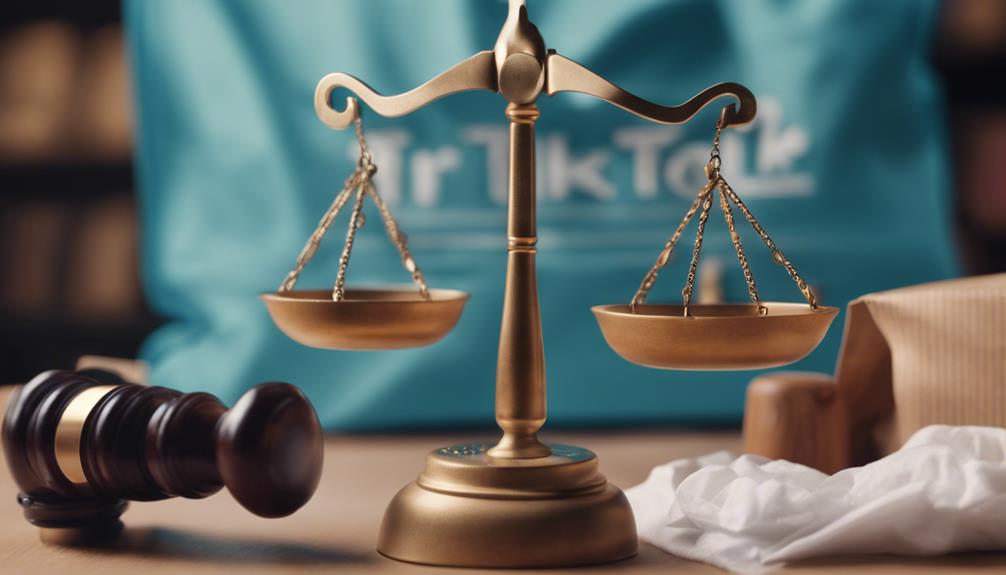
Is TikTok shop legal?
You’ve probably spotted the TikTok Shop feature, allowing users to buy products directly through the app.
But have you ever stopped to question its legality? As we know, online shopping platforms must adhere to certain laws and regulations, but is TikTok following suit?
Let’s investigate this further and uncover some potential legal considerations regarding this popular social media platform’s venture into e-commerce.
Key Takeaways
- TikTok Shop is legal, aligning with e-commerce trends and leveraging cutting-edge technology to enhance the shopping experience.
- User agreements on TikTok Shop detail data collection, usage, and dispute resolution, ensuring users are well-informed.
- Online shopping laws, including consumer protections and fair advertising, apply to TikTok Shop, further legitimizing its operations.
- Despite potential legal issues like copyright concerns or fraudulent merchandise, TikTok Shop employs product verification and seller vetting for user protection.
Understanding TikTok’s E-commerce Expansion

To fully grasp the legality of TikTok Shop, it’s essential that you understand TikTok’s shift into the e-commerce world. This isn’t merely a whim but a strategic move in line with prevailing e-commerce trends. As the world becomes increasingly digital, TikTok is ensuring it’s not left behind.
TikTok’s market strategy is to leverage its massive user base, tapping into the potential for impulse buys through engaging short video content. The platform’s unique selling point lies in its ability to merge entertainment and shopping, creating a seamless transition from viewing to purchasing.
Innovation is at the heart of this shift, with TikTok capitalizing on cutting-edge technology to facilitate an immersive shopping experience. It’s not just about buying; it’s about enjoying the process. This innovative approach sets TikTok apart in an overcrowded e-commerce landscape.
As TikTok expands its services, it needs to navigate the complex web of international trade laws, data security regulations, and consumer rights protections. It’s a challenging road ahead, but one that promises exciting possibilities for the tech giant and its users alike.
TikTok Shop: User Agreements
Understanding the legal intricacies of TikTok’s e-commerce venture is crucial, and it’s vital to be aware of the user agreements that regulate TikTok Shop. These agreements play a pivotal role in user protection and can help identify potential agreement loopholes.
The user agreements encompass several key aspects:
- Data Collection and Usage: How TikTok collects, uses, and shares your data is outlined here. It’s important to understand what personal information you’re allowing them to access.
- Dispute Resolution: This clause explains how disputes will be handled, including arbitration requirements. Knowing your options in case of issues is essential.
- Termination Rights: All users should understand the conditions under which TikTok can terminate their account or access to the Shop.
- Exclusion of Warranties and Limitation of Liability: This section limits TikTok’s responsibility in case of issues with the products or services.
Knowing these segments can help you navigate the platform effectively while ensuring your protection. This knowledge empowers you to detect any agreement loopholes and make informed decisions about using TikTok Shop.
Overview of Online Shopping Laws

In the realm of online shopping, it’s your responsibility to familiarize yourself with the laws that govern e-commerce. Consumer protections are paramount, ensuring your rights and interests are safeguarded. These laws provide a safety net against digital fraudulence, ensuring you’re not taken advantage of in the virtual marketplace.
Online shopping laws vary by country, but they usually cover essential aspects such as fair advertising, accurate product descriptions, and the right to return goods. They also stipulate that sellers must provide clear information about the total cost, including taxes and delivery fees.
Furthermore, it’s crucial to know that these laws aren’t static. They continue to evolve with the rapidly changing digital landscape, adapting to new business models and technologies. And that’s a good thing. As e-commerce platforms innovate, the laws must keep pace to remain effective.
TikTok Shop Privacy Policies
Navigating TikTok Shop’s privacy policies might seem daunting, but it’s crucial for ensuring your personal information remains secure. TikTok Shop is committed to maintaining the highest standards of data protection and shop authenticity.
Here’s an analytical overview of their key policies:
- User data is collected only with your explicit consent and is used strictly for providing better service.
- TikTok Shop ensures robust data protection mechanisms in place to prevent unauthorized access.
- They affirm the authenticity of the shops listed on their platform, promising a secure shopping environment.
- If you wish to delete your data, their policies clearly outline the process for it.
These policies illustrate TikTok Shop’s dedication to a transparent, secure shopping experience.
Potential Legal Issues With Tiktok Shop

While TikTok Shop prioritizes user safety and data protection, it’s worth noting that potential legal issues may still arise, which you need to be aware of. Two key areas of concern are copyright issues and the possibility of fraudulent merchandise.
Copyright Concerns can arise if a seller uses copyrighted materials without proper authorization. This could be anything from using a brand name to images or logos. On the other hand, Fraudulent Merchandise refers to situations where sellers use the platform to sell counterfeit goods or products that don’t match their descriptions.
To provide a clearer understanding, let’s look at the table below:
| Potential Legal Issue | Implication | Solution |
|---|---|---|
| Copyright Concerns | Unauthorized use of copyrighted materials | Verification of product authenticity |
| Fraudulent Merchandise | Sale of counterfeit goods or false advertising | Strict seller vetting and product verification |

